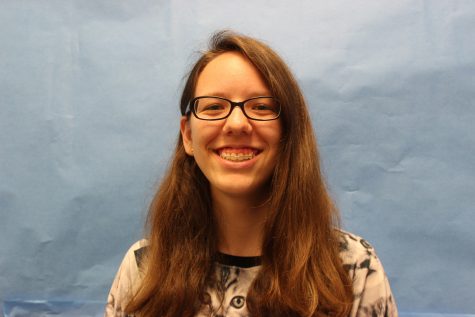Spevak deals with Adjustment Disorder
November 26, 2016
I was diagnosed at the age of 16 with adjustment disorder, a mental illness similar to PTSD that presents with symptoms of anxiety and/or depression.
Anxiety is a mental illness where a person experiences relentless feelings of worry or fear that is strong enough to interfere with their daily life.
Depression is a mental illness that is characterized by a persistent depressed mood and a loss of interest in activities. It can cause significant impairments in one’s daily life.
In my case, I had situational anxiety – anxiety that isn’t constant and only rears its ugly head when evoked – and intense depression. I was ecstatic that what I had been feeling for so many years actually had a name, even if it wasn’t what I expected.
In sixth grade, life started to really change. We had gotten a large number of new students in our previously tight-knit class, so everything felt out of place. Things got better once I befriended one of the new students, but that friendship fell apart when she and another friend made a snap decision and openly decided that I was no longer fit to socialize with them. My teacher tried to help, but the damage had already been done.
Things gradually got better for two years after that – except for the occasional unwarranted emergence of depression – and I had high hopes for high school.
My freshman year started out relatively well considering I knew about a grand total of three people in the entire school. I miraculously made new friends and gained new interests in activities such as marching band, art, and journalism. Up until October, everything was spectacular.
In mid-October, I started having episodes of the inability to catch my breath paired with occasional chest pains. My mom took me to the doctor, where a number of tests were done on me, including an echocardiogram – an ultrasound of the heart, an EKG, and blood work. They somehow found nothing wrong with me.
The strange episodes eventually stopped afflicting me. My mom and I still tried to understand what exactly had been happening; we eventually decided that anxiety attacks were likely the culprit. Even though anxiety had been an issue for a while, I was overall happier.
The summer after freshman year, my father – who lives hundreds of miles away near Seattle, Washington St. – repeatedly went missing. He wouldn’t answer his phone or go to work; nobody had seen or heard from him in weeks. It was devastatingly difficult to be so far away and unable to do anything to help.
My mood got worse and worse until I was in the tight grip of relentless depression. I would only lay in bed under a think pile of blankets and watch videos on YouTube or scroll through Facebook or Tumblr. I despised having to get up to take care of myself or do chores for my mom.
I stopped having the will to live.
Luckily, two of my friends unknowingly saved me from myself by inviting me to hang out with them at a local park. I was shocked that I actually had fun. From that point on, I decided that I should try to take care of myself and move past the pain.
Once sophomore year rolled around, my depression had lessened significantly; it was still there, but I could easily function like I normally did. I thought, perhaps, that I had finally gotten a break from the relentless drag of emptiness.
In November, that hope flew out the window when my depression relapsed full-force. I was absolutely done with dealing with it on my own, so I told my immediate family that I was suffering. It wasn’t very long before I went to the doctor and was given a psychologist to go to.
My psychologist had me fill out a couple questionnaires, and was able to determine from my answers that I have adjustment disorder. He gave me some instructions on how to calm myself down and make myself happier. I tried to take his advice, but nothing seemed to have any effect of my mood. Soon after, I started taking 50 mg of Zoloft.
The summer passed by without any memorable negative incidents. In fact, pretty much nothing happened aside from a vacation to Colorado.
Each day started anywhere from about 9 AM to 12 PM. I spent most of the day in bed on my laptop, only getting up every couple of hours for food or to use the bathroom. My cats kept me company and entertained me far more than I would like to admit.
Presently, I take 75 mg of Zoloft and have stopped seeing my psychologist. I’m overall happier, but I still have seemingly soul-crushing relapses. I take the relapses as an opportunity to learn new ways to help myself and recover.
I’ve found that there are numerous ways I can help myself when in a relapse. My preferred ways are playing with my cats, making art, writing, using my personal care bag, and most importantly talking to people.
Talking to my family was the biggest step I took in this entire endeavor. I cannot stress enough how important it is to do that. I had been sad and scared and in hiding, but now I’m completely open with my mental illness.
I find no point in hiding something about myself that isn’t my fault.


